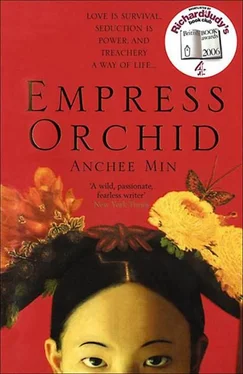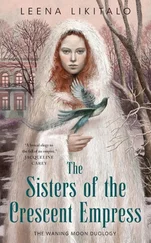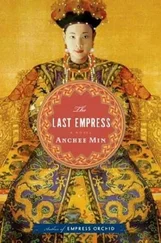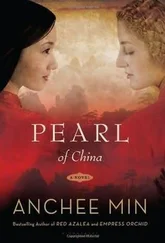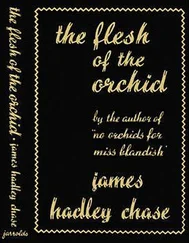My mother didn’t consider herself educated, but she adored Li Po, a Tang Dynasty poet. Each time she read his poems she would discover new meanings. She would put down her book and gaze out the window. Her goose-egg-shaped face was stunningly beautiful.
Mandarin Chinese was the language I spoke as a child. Once a month we had a tutor who came to teach us Manchu. I remember nothing about the classes but being bored. I wouldn’t have sat through the lessons if it hadn’t been to please my parents. Deep down I knew that my parents were not serious about having us master the Manchu language. It was only for the appearance, so my mother could say to her guests, “Oh, my children are taking Manchu.” The truth was that Manchu was not useful. It was like a dead river that nobody drank from.
I was crazy about Peking operas. Again, it was my mother’s influence. She was such an enthusiast that she saved for the entire year so she could hire a local troupe for an in-house performance during the Chinese New Year. Each year the troupe presented a different opera. My mother invited all the neighbors and their children to join us. When I turned twelve the troupe performed Hua Mulan.
I fell in love with the woman warrior, Hua Mulan. After the show I went to the back of our makeshift stage and emptied my wallet to tip the actress, who let me try on her costume. She even taught me the aria “Goodbye, My Dress.” For the rest of the month people as far as a mile from the lake could hear me singing “Goodbye, My Dress.”
My father took pleasure in telling the background to the operas. He loved to show off his knowledge. He reminded us that we were Manchus, the ruling class of China. “It is the Manchus who appreciate and promote Chinese art and culture.” When liquor took hold of my father’s spirit, he would become more animated. He would line up the children and quiz us on the details of the ancient Bannerman system. He wouldn’t quit until every child knew how each Bannerman was identified by his rank, such as Bordered, Plain, White, Yellow, Red and Blue.
One day my father brought out a scroll map of China. China was like the crown of a hat ringed by countries eager and accustomed to pledging their fealty to the Son of Heaven, the Emperor. Among the countries were Laos, Siam and Burma to the south; Nepal to the west; Korea, the Ryukyu Islands and Sulu to the east and southeast; Mongolia and Turkestan to the north and northwest.
Years later, when I recalled the scene, I understood why my father showed us the map. The shape of China was soon to change. By the time my father met his fate, during the last few years of Emperor Tao Kuang, the peasant revolts had worsened. In the midst of a summer drought, my father didn’t come home for months. My mother worried about his safety, for she had heard news from a neighboring province about angry peasants setting their governor’s mansion on fire. My father had been living in his office and trying to control the rebels. One day an edict arrived. To everyone’s shock the Emperor dismissed him.
Father came home deeply shamed. He shut himself in the study and refused visitors. Within a year his health broke down. It didn’t take him long to die. Our doctor bills piled up even after his death. My mother sold all of the family possessions, but we still couldn’t clear the debts. Yesterday Mother sold her last item: her wedding souvenir from my father, a butterfly hairpin made of green jade.
Before leaving us, the footmen carried the coffin to the bank of the Grand Canal so we could see the passing boats, where we might get help. The heat worsened and the air grew still. The smell of decay from the coffin grew stronger. We spent the night under the open sky, tormented by the heat and mosquitoes. My siblings and I could hear one another’s stomachs rumbling.
I woke at dawn and heard the clattering of a horse’s hooves in the distance. I thought I was dreaming. In no time a rider appeared in front of me. I felt dizzy with fatigue and hunger. The man dismounted and walked straight toward me. Without saying a word he presented me with a package tied with ribbon. He said it was from the taotai of the local town. Startled, I ran to my mother, who opened the package. Inside were three hundred taels of silver.
“The taotai must be a friend of your father’s!” Mother cried. With the help of the rider we hired back our footmen. But our good luck didn’t last. A few miles down the canal we were stopped by a group of men on horses led by the taotai himself. “A mistake has been made,” he said. “My rider delivered the taels to the wrong family.”
Hearing this, Mother fell to her knees.
The taotai ’s men took back the taels.
Exhaustion suddenly overwhelmed me and I fell on my father’s coffin.
The taotai walked to the coffin and squatted as if studying the grains of the wood. He was a stocky man with rough features. A moment later he turned to me. I expected him to speak but he didn’t.
“You are not a Chinese, are you?” he finally asked. His eyes were on my unbound feet.
“No, sir,” I replied. “I am Manchu.”
“How old are you? Fifteen?”
“Seventeen.”
He nodded. His eyes continued to travel up and down, examining me.
“The road is filled with bandits,” he said. “A pretty girl like you should not be walking.”
“But my father needs to go home.” My tears ran.
The taotai took my hand and placed the silver taels in my palm. “My respects to your father.”
I never forgot about the taotai. After I became the Empress of China I sought him out. I made an exception to promote him. I made him a provincial governor, and he was given a handsome pension for the rest of his life.
WE ENTERED Peking through the south gate. I was amazed at the massive rose-colored walls. They were everywhere, one behind another, winding around the entire city. The walls were about forty feet high and fifty feet thick. At the hidden heart of the sprawling, low-lying capital sat the Forbidden City, the home of the Emperor.
I had never seen so many people in one place. The smell of roasting meat fluttered in the air. The street before us was more than sixty feet wide, and for a mile went straight to the Gate of Zenith. Along each side were rows of deep huddled mat-constructed booths and shops festooned with flags announcing their wares. There was so much to see: rope dancers twirling and spinning, fortunetellers throwing interpretations of the I Ching, acrobats and jugglers performing tricks with bears and monkeys, folksingers telling old tales in fanciful masks, wigs and costumes. Furniture craftsmen were busy with their hands. The scenes were right out of classic Chinese opera. Herbalists displayed large black dry fungi. An acupuncturist applied needles to a patient’s head, making him look like a porcupine. Repairers mended porcelain with small rivets, their work as fine as embroidery. Barbers hummed their favorite songs while shaving their customers. Children screamed happily while sly-eyed camels with heavy loads strutted elegantly by.
My eyes were drawn to sugar-coated berries on sticks. I would have felt miserable if I hadn’t seen a group of coolies carrying heavy buckets on bamboo poles across their bare shoulders. The men were collecting feces for the night-soil merchants. They moved slowly toward waiting boats by the canal.
A distant relative whom we called Eleventh Uncle received us. He was a tiny-framed, sour man from my father’s side. He wasn’t pleased with our arrival. He complained about his troubles running a dry-food shop. “There hasn’t been much food to dry in recent years,” he said. “All eaten. Nothing left to sell.” Mother apologized for the inconvenience and said that we would leave as soon as we got back on our feet. He nodded and then warned Mother about his door: “It falls out of its frame.”
Читать дальше
